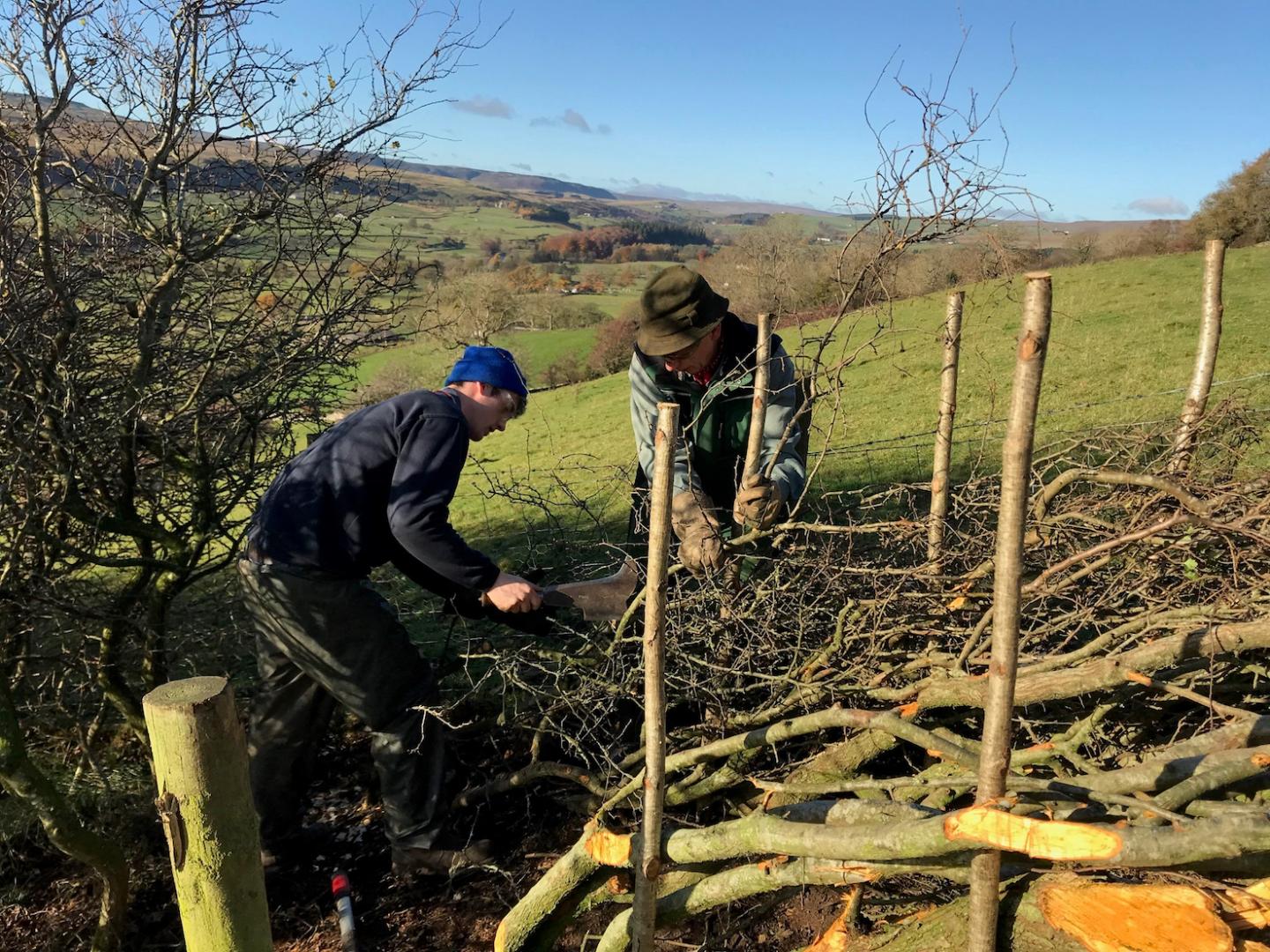HEDGEROWS are in good hands thanks to a couple of courses run in upper Teesdale.
Six trainees took part in a two-day introductory hedge laying course run by Utass (Upper Teesdale Agricultural Support Services) in conjunction with the Durham Hedgerow Partnership, which provided the funding.
Three trainees then progressed onto a two-day improvers’ course, which was held later in the same week.
The courses were led by award-winning hedge layer Burt Hunter, who said it was important to pass on the skills to a new generation.
“I derived immense satisfaction from imparting my skills and knowledge to the trainees, who engaged fully with the course content and showed considerable aptitude and enthusiasm,” he said.
“A lot of the current practitioners are on the wrong side of 60 so we desperately need to train up hedge layers for the future.
“This craft was first mentioned by Julius Caesar and we want it to survive for another 2,000 years.”
The course was held at Woodside, Newbiggin. The first day covered understanding of hedgerows and their function in the landscape, along with the basic technique of hedge laying and health and safety implications.
This was followed by an introduction to the tools used and a practical session sharpening tools and the stakes required for supporting a laid hedge.
During the second day, trainees were given a demonstration of laying plashers (hedge plants) and guided practice of plashing and staking.
Those attending the improvers’ two-day course were able to consolidate what they had learnt and gain more practical experience with Burt on hand for advice and guidance.
Trainee Peter Medd said: “I really appreciated Burt’s time, knowledge and experience. As we have plenty of hedges that need to be laid, I will now be able to get a start and will do my chainsaw certificate with Utass so that I can progress more quickly now I have the necessary skills.
“I plan to get some extra work hedge laying over winter when we are quieter on the farm.”
Tom Vickers, who also attended the course, added: “I wanted to do hedge laying because the change in agricultural policy towards paying for public good will likely mean a lot more hedges will be planted in the future.
“Hedges are a perfect example of a man made and managed habitat which play a vital role in on-farm ecosystem maintenance.
“I will use what I have learned from the training to plant, lay and manage hedges on our farm for the future benefit of nature and future generations.”
In addition to training, the Durham Hedgerow Partnership offers grants for planting and regenerating hedgerows and runs the annual County Durham hedge laying competition every October.
Email [email protected] for further details.
ADVERTISEMENT
Laying the groundwork to safeguard hedges
ADVERTISEMENT
ADVERTISEMENT
ADVERTISEMENT







